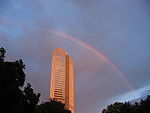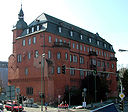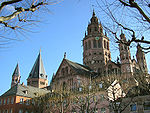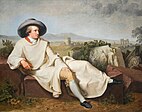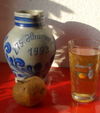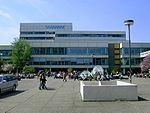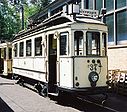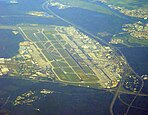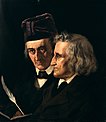User:Magadan/FRM
|
Articles on Frankfurt and the Frankfurt Rhein-Main Region in Wikipedia | |
 | |
Frankfurt[edit]bla bla bla bla bla bla bla bla bla bla bla bla bla bla bla bla bla bla bla bla bla bla bla bla bla bla bla bla bla bla bla bla bla bla bla bla bla bla bla bla bla bla bla bla bla bla bla bla bla bla bla bla bla bla |
Rhine-Main[edit]bla bla bla bla bla bla bla bla bla bla bla bla bla bla bla bla bla bla bla bla bla bla bla bla bla bla bla bla bla bla bla bla bla bla bla bla bla bla bla bla bla bla bla bla bla bla bla bla bla bla bla bla bla bla bla bla bla bla bla bla bla bla bla bla bla bla bla bla bla bla bla bla |
Geography[edit]bla bla bla bla bla bla bla bla bla bla bla bla bla bla bla bla bla bla bla bla bla bla bla bla bla bla bla bla bla bla bla bla bla bla bla bla bla bla bla bla bla bla bla bla bla bla bla bla bla bla bla bla bla bla bla bla bla bla bla bla bla bla bla bla bla bla bla bla bla bla bla bla | |
| |
Townscape[edit]bla bla bla bla bla bla bla bla bla bla bla bla bla bla bla bla bla bla bla bla bla bla bla bla bla bla bla bla bla bla bla bla bla bla bla bla bla bla bla bla bla bla bla bla bla bla bla bla bla bla bla bla bla bla bla bla bla bla bla bla bla bla bla bla bla bla bla bla bla bla bla bla bla bla bla bla bla bla bla bla bla bla bla bla bla bla bla bla bla bla bla bla bla bla bla bla | |
| |
History[edit]From roman times to the middle ages, Mainz was the region's first city, by population and as the home of the Holy Roman Empire's leading archbishop. The Free Imperial City of Frankfurt later passed Mainz in size and importance, becoming one of Central Europe's most important cities for more than 700 years without interruption. Besides being an international trade center, Frankfurt was the election and coronation site for the German emperors. The republican city-state was surrounded by many small pricipalities, of which Hesse-Darmstadt and Nassau were the most important. In the 19th century, Frankfurt was the capital of the German Confederation and the seat of the revolutionary Frankfurt Parliament. In 1866, the city and most of its neighbors were annexed by Prussia. Since 1945, most of the region is part of the state of Hesse. During World War II, Frankfurt lost its large and influental jewish community to the holocaust genocide, and its famous historical city center to allied bombings. In the post-war period, Frankfurt became the de-facto capital of West Germany. Due to massive suburbanization, the region's cities almost grew together, forming a kind of a Rhine-Main megacity today. | |
| |
Culture and Science[edit]The region hosts three important universities. Goethe University's Institute for Social Research, home of the Frankfurt School, was one of the most influental sociologic institutions in the 20th century. Pharmaceutical company Hoechst was leading in developing drugs. — Frankfurt, Wiesbaden, Mainz and Darmstadt have Opera houses and other important theaters. Seven museums, including Städel Art Museum are centered on Museum Embankment. Senckenberg Museum of Natural History displays dinosaur skeletons and other findings from the nearby Messel pit World Heritage site, Mainz's Gutenberg Museum has two copies of the 1455 Gutenberg Bible. — Frankfurt cuisine is famous for Handkäse, Green Sauce and Apfelwein (cider). Those who dislike the latter might enjoy a Riesling or other white wine from Rheingau. | |
| |
Economy, Media, Sport[edit]Since the middle ages, Frankfurt is a center of international economy. Frankfurt Trade Fairs can be traced back to 1160, and the city's stock exchange, second in Europe after London's LSE, was founded in 1585. Frankfurt is the seat of both the German Bundesbank and the European Central Bank, and most of Germany's financial companies are headquartered here. The region's industry concentrates on chemical and pharmaceutical companies of which Hoechst was the most important. Automaker Opel is the largest company outside the chemical sector. — Frankfurt was one of the first cities to have a newspaper, the Frankfurter Postzeitung was founded in 1615. Frankfurter Zeitung and Frankfurter Allgemeine Zeitung were and are read worldwide. ZDF is one of Europe's leading TV networks. — As elsewhere in Europe, football is the most popular sport, with scandal-ridden Eintracht Frankfurt being Frankfurt's best-known club. Its stadium was one of the venues for the 2006 FIFA World Cup. | |
| |
Transport[edit]Frankfurt is Central Europe's transport hub. The city has Europe's busiest train station and freeway interchange, and the largest airport on the continent. Regional and urban traffic is basing on a large network of Autobahns. Public transport includes S-Bahn (suburban rapid transit), U-Bahn (subway), buses and the tram systems of Frankfurt, Mainz and Darmstadt. | |
| |
People[edit]As Mainz used to be one of Roman Germany's urban centers, the list of the region's celebrities starts almost 2000 years ago. Medieval Mainz was the home of Johann Gutenberg, whose invention in printing technology marks Europe's first step into Information society. Polymath Johann Wolfgang von Goethe is considered to be Frankfurt's greatest son. In the 19th and 20th centuries, the city was home to important scientists as Otto Hahn or Paul Ehrlich and thinkers as Arthur Schopenhauer and those affiliated with the Frankfurt School. Many important inhabitants of both cities emerged from their lively jewish communities, from Rabbi Gershom ben Judah over the Rothschild banking dynasty to famous Nazi victim Anne Frank. | |
| |
City portals on Wikipedia[edit] | |
|
Bucharest - Chicago - Cleveland - Frankfurt - Hong Kong - Las Vegas - London - Montreal - New York City - Paris - Philadelphia - Prague - Toronto | |
Joining the team?[edit] | |
|
Every help is welcome. For ideas and discussions, visit Wikipedia:WikiProject Frankfurt or contribute on the portal's talk page. Wikipedians in Frankfurt - Wikipedians in Hesse - Wikipedians in Rhineland-Palatinate | |



